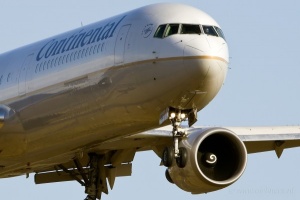United, Continental and ANA seek trans-Pacific tie-up

United Airlines, Continental Airlines and All Nippon Airways are seeking a three-way tie-up which will enable them to co-ordinate schedules and fares between North America and Japan.
In a joint statement the three airlines, which are all members of the Star Alliance, said they have filed an application with the US Department of Transportation seeking antitrust immunity in a bid to “compete more effectively” with other global airline alliances.
The application comes less than a fortnight after governments in Japan and the United States reached an “open skies” agreement that will liberalise air travel possibilities between the two economic superpowers.
The move comes as ANA’s rival Japan Airlines is currently being courted by its oneworld partner American Airlines, as well as Delta Airlines, a SkyTeam member, to seek a similar tie-up.
United, Continental and ANA said approval of their application offer expanded route choices and a wider range of fares and services.
ADVERTISEMENT
“This joint venture, coupled with the recently announced open skies agreement between the US and Japan, will significantly enhance our ability to serve customers in Japan and throughout Asia,” United chief executive Glenn Tilton said in a statement.
“Our network of service to nine Japanese cities will be enhanced by giving our customers more options for using our flights in conjunction with United and ANA for trips both within the region as well as on trans-Pacific routes,” said Larry Kellner, Continental’s chairman and chief executive officer.
Meanwhile the application of American and British Airways for antitrust immunity that would allow them to co-ordinate transatlantic routes could prove the benchmark on whether collaboration on pacific routes will be given the go-ahead.
But the deal was dealt a blow earlier this week when the DoJ said that the two carriers should agree to major concessions to secure approval of their immunity bid, and that the tie-up could result in fares rising by as much as 15 percent.
The verdict came in a report to the US Department of Transportation (DoT), which then makes a final decision on whether the deal can proceed.
The DoJ has highlighted services between London and New York, Boston and Chicago as those most likely to suffer a hike in fares due to lower competition.
It has proposed that the two airlines surrender slots at busy airports in these cities, including Heathrow and JFK, in order to win antitrust approval.
The US Department of Transportation granted antitrust immunity to United and Continental in July 2009, enabling the two carriers to coordinate schedules and fares for services outside the United States.

